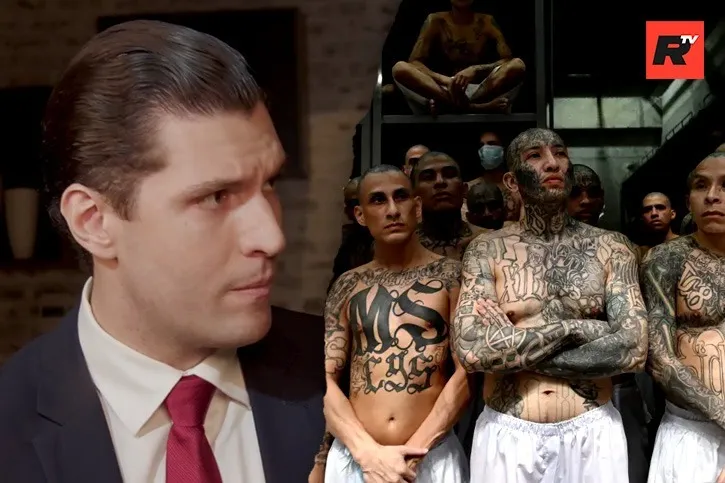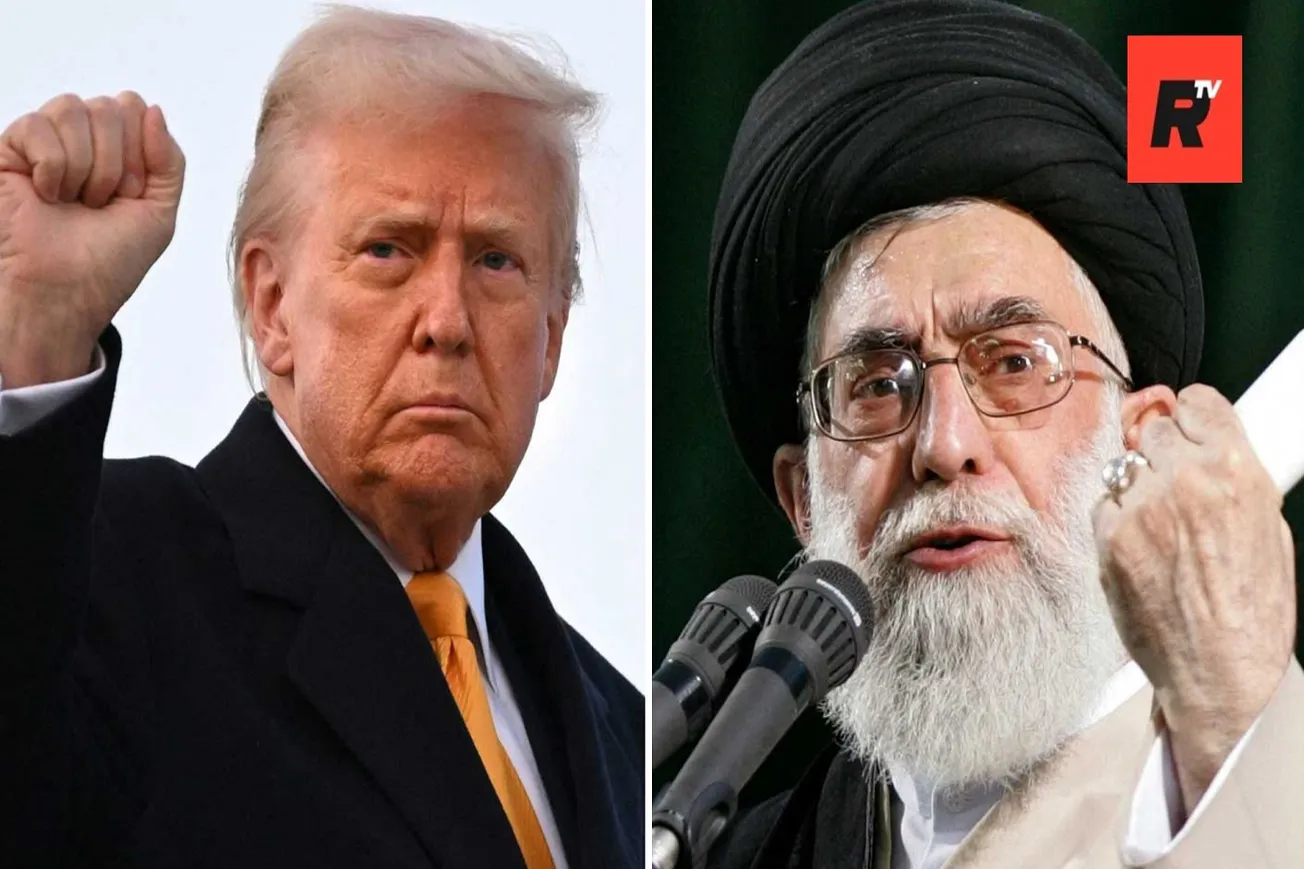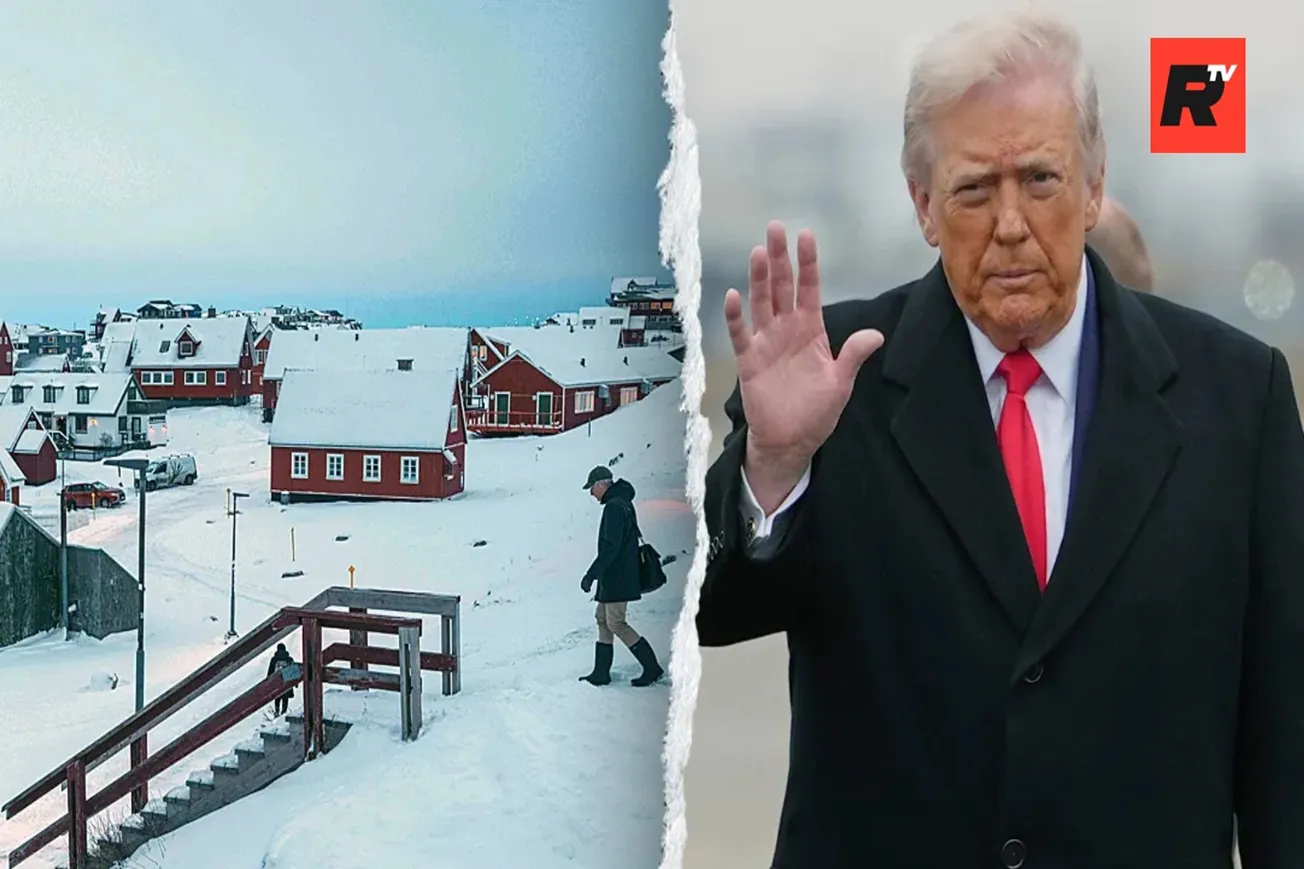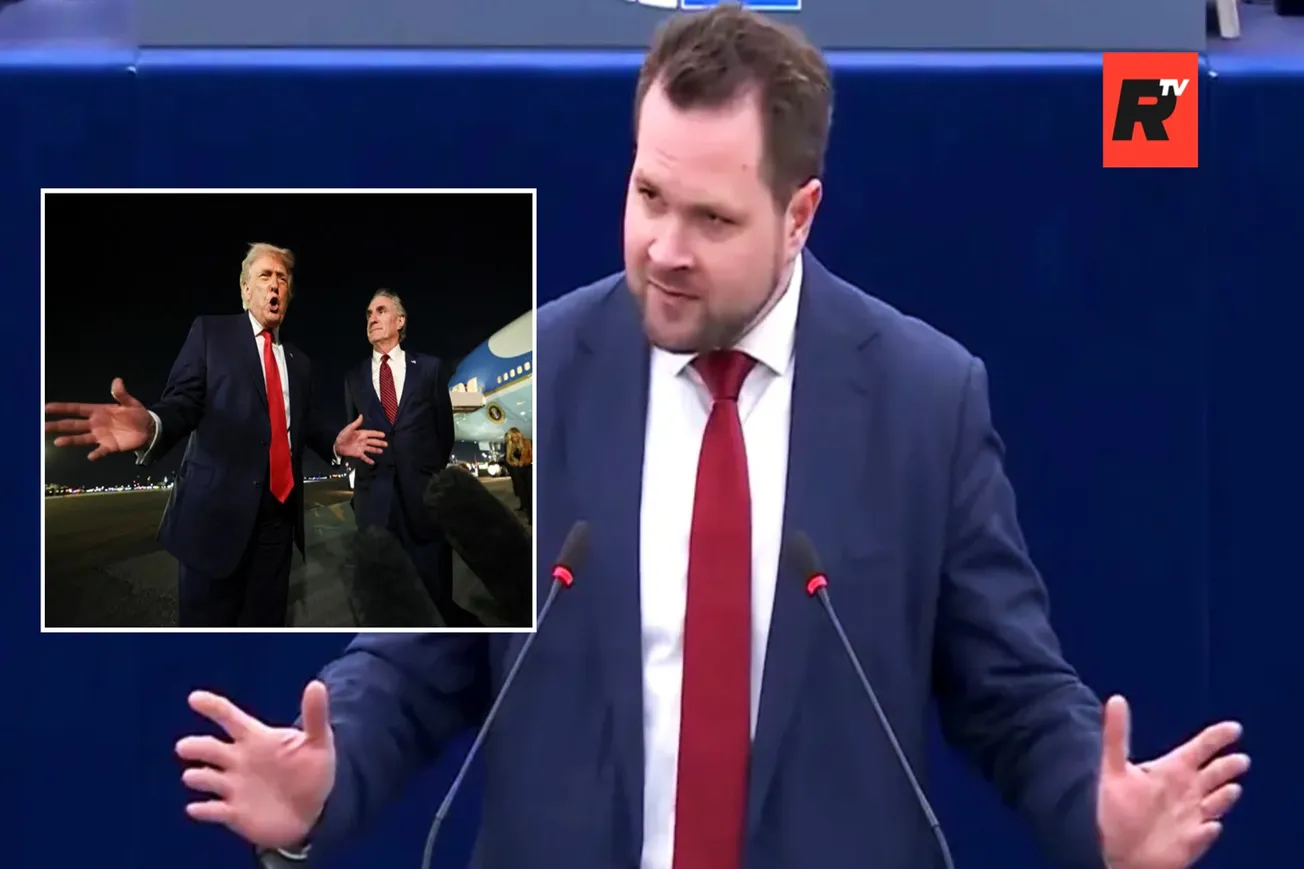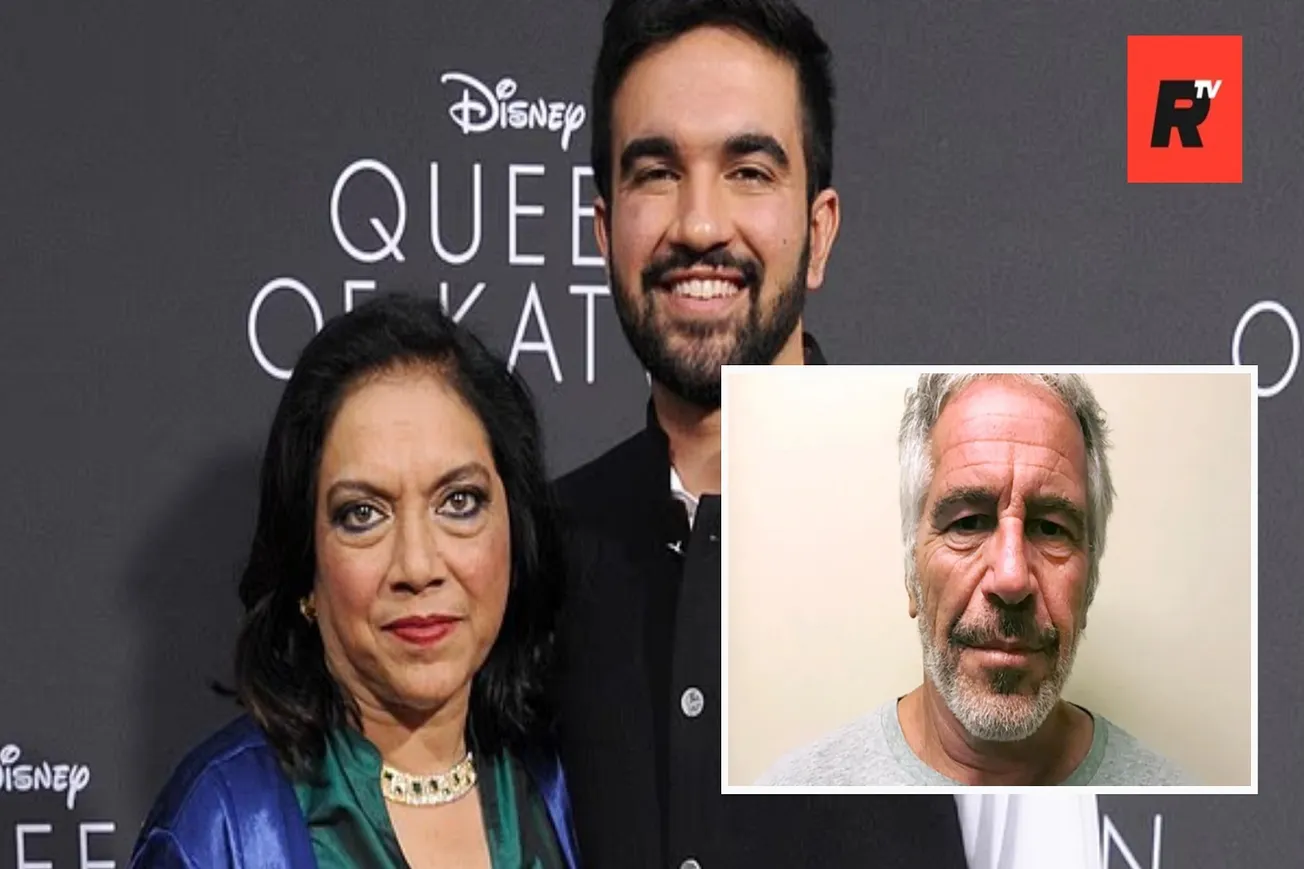Table of Contents
Rift TV has boots on the ground in El Salvador, a nation once synonymous with bloodshed and despair, now emerging as a beacon of hope and a case study in reclaiming sovereignty.
The country's chaos that once fueled waves of illegal migration to our borders is being dismantled, proving that strong leadership can rewrite a country’s destiny and ease the strain on our own.
We sat down with political analyst Herbert Esmahan in San Salvador for an exclusive, unfiltered look at how President Nayib Bukele transformed a gang-ridden hellhole into a model of resilience, offering lessons for nations drowning in misery.
This isn’t just El Salvador’s story—it’s a wake-up call for the world.

Esmahan, a lifelong Salvadoran who’s studied the nation’s political fault lines for decades, didn’t mince words about the horrors of the past.
"Quite often, we would see situations in which they would even board public transport to mug everyone on board regardless they were old or if they were young, regardless, and if the people didn’t pay, they would set the whole public transport bus on fire, killing dozens of victims at once,” he said, describing a time when gangs like MS-13, also known as Mara Satanica or Satan's crew, ruled with impunity, torching buses and lives in a reign of terror.
Esmahan, a respected voice in Salvadoran political analysis, grew up in the shadow of this violence. His deep roots in the country and years dissecting its struggles with corruption, gangs, and foreign meddling give him an unmatched perspective.
Having lived through El Salvador’s darkest days, Esmahan is now witnessing its rebirth and offers insights that cut through the noise of corporate global media.
Esmahan detailed the transformation under Bukele, who’s not just a president but a global phenomenon.
"What we’re seeing now in El Salvador is a nation that’s healing, a nation that has been given a future that had been taken away by the corrupt politicians of the past who never cared about the well-being of El Salvador or its people," he said, crediting Bukele with restoring patriotism and sovereignty.
WATCH:
Rift TV witnessed this firsthand – new hotels, modern schools, and bustling streets where fear once prevailed – not a temporary fix, but a long-term, remarkable transformation.
El Salvador’s descent into chaos began with a brutal civil war from 1979 to 1992, which birthed gangs like MS-13 among deported Salvadoran refugees in Los Angeles. According to the Council on Foreign Relations, by 2015, the country’s homicide rate hit 105 per 100,000, earning it the grim title of murder capital of the world.

Businesses faced weekly extortion, and a corrupt judicial system let killers walk free.
Elected president in 2019 at age 37 with his Nuevas Ideas party, Bukele capitalized on public disgust with the corrupt Farabundo Martí National Liberation Front, a left-wing party that originated from a guerrilla group fighting in the country's civil war, and the Nationalist Republican Alliance, a right-wing party that has historically held power.
His 2022 crackdown, reportedly jailing over 85,000 suspected gang members, slashed homicides to 2.4 per 100,000 by 2023, reportedly lower than Canada’s.
Infrastructure booms, from first-world schools to tourist hotspots, have fueled economic growth, with coastal property values soaring tenfold.
"President Bukele has not all, not only restored our democracy, our sovereignty, but he has restored the patriotism within the hearts of every Salvador,” Esmahan explained, describing the political shift that enabled the country's economy to flourish and broke the stranglehold of a corrupt multiparty system.
Post-civil war, El Salvador transitioned from military rule to a multiparty democracy under the 1992 peace accords. FMLN and ARENA dominated, but their corruption fueled Bukele’s rise.
Bukele's consolidation of power – stacking courts and suspending rights – has ignited debate, yet his 91% approval rating shows a public prioritizing security over civil liberties.
This transformation directly impacts the U.S: Esmahan pointed to global forces that thrive on Latin American chaos.
"There always exists an interest from globalist elites around the world… that seeks to maintain Latin American countries in a constant state of chaos," he said, explaining that disorder enables cartels and rampant illegal immigration. "If you restore order in Latin America… frauds of illegal immigrants will no longer head towards the north."
El Salvador’s pre-Bukele turmoil sent thousands fleeing to the U.S. border, taxing resources. Now, migration has dropped approximately 60%, and cartels have lost a key corridor, easing pressure on American border security.
Move to #ElSalvador ASAP (escape the 🇺🇸 immigration apocalypse)
— Max Bitcoin (@maxkeiser) January 30, 2024
We’re expecting 500,000 middle class & HNWI Salvadorans from the US to move here over the next 6 months. Our GDP is set to double over the next 5 yrs. #BTC is legal tender.
🇸🇻 is OFFICIALLY safer than Canada https://t.co/3CWQbvVvuH pic.twitter.com/1bhkzlzwv2
Esmahan recalled the gang era’s toll on ordinary Salvadorans.
"The moment you opened a business… you would get a knock on your door by a gang number who would come and collect his weekly allowance, or his weekly rent," he said. "If you did not pay… they would literally come in broad daylight and shoot you or one of your relatives or employees right in the face."
Bukele’s reforms, he added, have built a justice system that works.
"Now we are seeing a justice system that is not only functional and effective, but has healed an entire nation."
Rift TV met Salvadorans who wept openly, not from despair but gratitude, sharing stories of extortion payments—sometimes thousands—now replaced by opportunity. Schools, once wooden shacks, are now modern hubs of learning.
"Now you see how President Bukele is building schools daily – proper structures, first world structures, to give our children and our future generations dignity,” Esmahan said.
El Salvador’s turnaround is a rebuke to a world order that profits from chaos.
As Rift TV leaves San Salvador, one truth stands clear: El Salvador’s revival is a testament to what’s possible when a leader prioritizes sovereignty and security.

